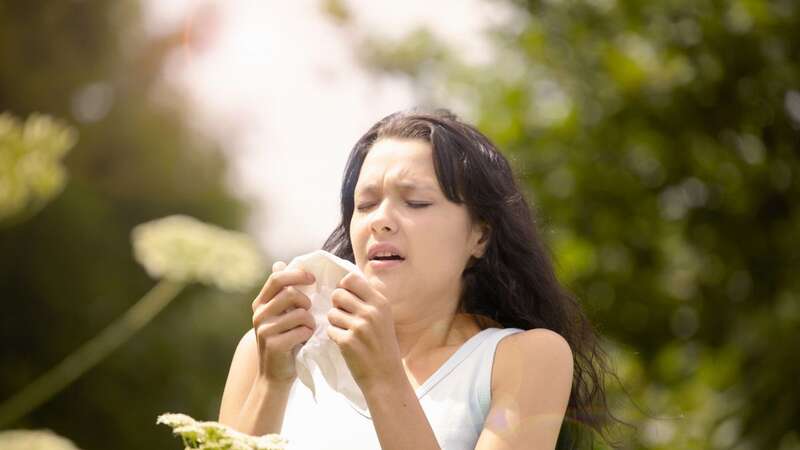
The UK is set to be hit with a "pollen bomb" this April and experts have warned that those who suffer from hayfever should expect flare-ups.
Now that the winter cold has passed, pollen counts are rising each day and experts have said. Whilst winter brings colds and flu, dry skin and freezing temperatures, hayfever season brings, eczema flare ups, itchy eyes, and runny noses.
A spokesperson for beauty and wellness marketplace, Fresha, said: "Around 44 per cent of all British adults are impacted by allergies, and hay fever is one of the most common allergies, reportedly affecting up to 49 per cent of the UK population," MyLondon reports.
The expert said grass pollen is the most common allergen and is strongest from May to June but warned that trees are mainly prone to causing the allergic reactions we know as hayfever, and it’s strongest from February to June.
The expert said: “Allergies cause inflammation in the body, which can lead to swelling and skin irritation. When an allergen enters your system, the immune system overreacts and prompts the release of histamine, causing symptoms like sneezing, itchy eyes, and wheezing."
 NHS in crisis as 500 people die each week due 'killer' to emergency care delays
NHS in crisis as 500 people die each week due 'killer' to emergency care delays
"However, that reaction inside your body can impact your skin, and most of the time, skin conditions like health/how-beat-itch-scratch-cycle-5640975>eczema, psoriasis, and hives are likely to flare up at the same time your allergies do. This is because they are all connected to the immune system. This flare-up will cause dryness, redness, irritation of the skin and sometimes puffiness around the eyes."
It’s possible to mitigate the impact of hayfever by preparing ahead, experts at Fresha share their top tips on allergy-proofing your skin during the hayfever season and it’s more than just taking an antihistamine.
Preventing dryness is key to reducing red, itchy, cracked symptoms. Therefore, moisturising at least twice daily, once in the morning and once at night, is recommended. Depending on your skin type and sensitivity, if you suffer from skin conditions such as eczema (including contact and atopic dermatitis), psoriasis, or rosacea, you should avoid any products containing fragrance or alcohol.
Anything labelled with ethanol, isopropyl alcohol, and alcohol denat is ultra-drying for the skin. Normally, the ingredients that are at the beginning of the label indicate the main ingredients the product is made up of. For example, e45's main ingredient is white soft paraffin, which helps soften dry skin and soothe sores, lesions, and psoriatic scaling. Also, try to opt for products with fewer active ingredients.
Read more similar news:
Comments:
comments powered by Disqus
































